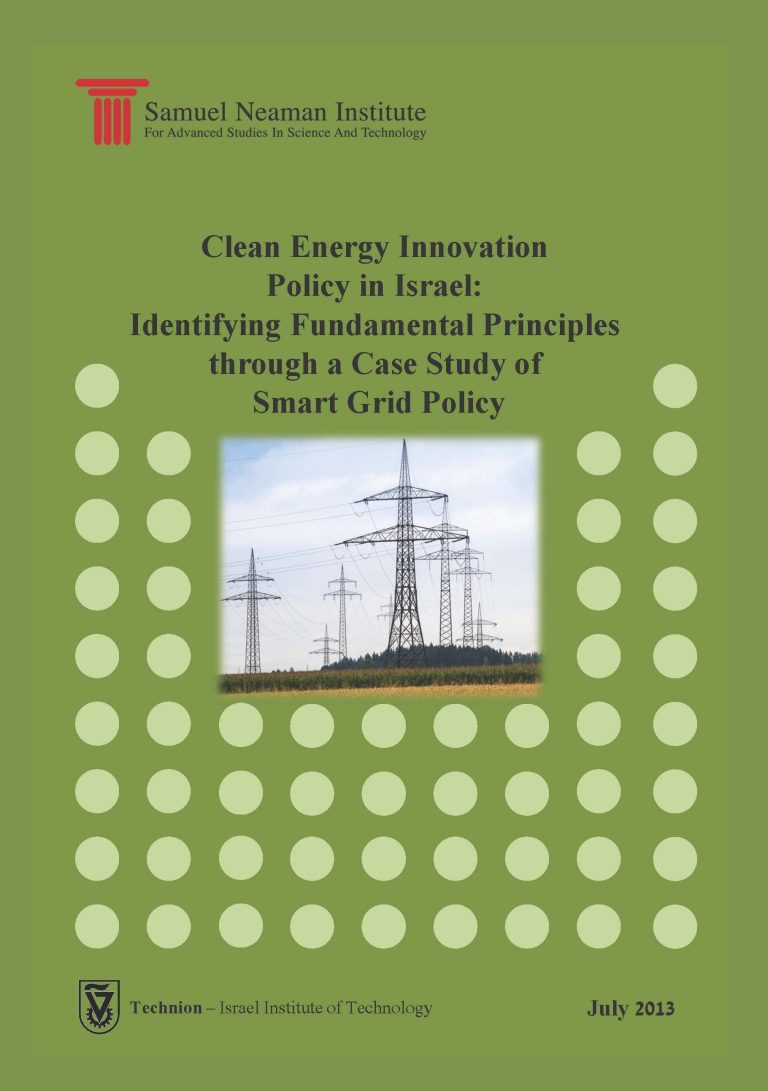This project has been conducted in cooperation between the Samuel Neaman Institute for Advanced Studies in Science and Technology (SNI) and the London School of Economics and Political Science (LSE). The goal of the project has been to analyze policy lessons emerging from Israel’s successful efforts to spark, direct, and accelerate the process of technological innovation in the clean energy sector. Specifically, the project examines the case of Israeli smart grid innovation to identify fundamental policy design principles that can be applied across other technology groups and in other countries with different political, economic, and technological contexts. By examining the case of Israeli smart grid innovation and particularly policy instruments being used to advance it, this report describes the building blocks of an innovation-based economy with particular reference to the smart grid. Details are given on key indicators including physical and strategic necessities, the culture of innovation and entrepreneurship, local market and Industry, the role of the Military, Academia and Government, financing and experience gained. This report attempts to answer several key questions: what specific Israeli government policies and institutional structures have encouraged (or retarded) the development of the smart grid sector? How have the public and private sector collaborated to advance the pace of innovation in the sector? Why have successful Israeli smart grid investments worked, and why have unsuccessful ones failed? To what extent have Israel’s successes in smart grid innovation resulted from institutional factors, i.e. government policies and structures? Based on a detailed analysis of these questions, the project formulates a series of more general recommendations of best practices for clean energy innovation policy.
 / Publications / Clean Energy Innovation Policy in Israel: Identifying Fundamental Principles through a Case Study of Smart Grid Policy
/ Publications / Clean Energy Innovation Policy in Israel: Identifying Fundamental Principles through a Case Study of Smart Grid Policy











